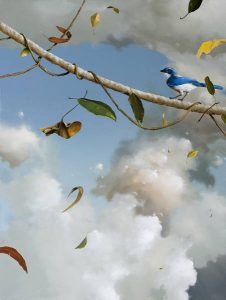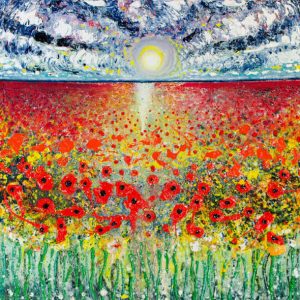 The Yogabliss, Two Rivers/RiverTree Yoga on-line Moving into Meditation classes met this morning. Today felt our appreciation for the simplest most vital things: “the quiet loyalty” of our breath. Nature is efficient. Our breath is given to us by Earth and Oceans. We are literally breathing the out breath of plants and phytoplankton. We considered how we, too, might emulate this amazing use of precious resources.
The Yogabliss, Two Rivers/RiverTree Yoga on-line Moving into Meditation classes met this morning. Today felt our appreciation for the simplest most vital things: “the quiet loyalty” of our breath. Nature is efficient. Our breath is given to us by Earth and Oceans. We are literally breathing the out breath of plants and phytoplankton. We considered how we, too, might emulate this amazing use of precious resources.
We planted questions like seeds in our hearts: How can we align ourselves with Earth Wisdom?
Our practice was informed by the fifth principle and practice of Rhonda Fabian’s article, Engaged Ecology: Seven Practices to Restore Our Harmony with Nature. The fifth principle: Nature is efficient. The fifth practice is is limiting consumption and waste.
We drew inspiration from poet philosopher John O’Donohue. His Morning Offering acknowledges the gifts we are so freely given: sunrise, time, beauty and consciousness. He encourages us to live the lives we would love.
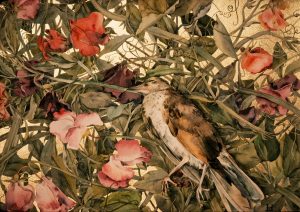 Daniel Christian Wahl’s Kosmos Essay, Indigenous to Life, speaks of aligning ourselves with Earth Wisdom. His excellent essay asks vital questions: What if we re-perceived who we are and identified more with life as a planetary process of inter-being? What if we aimed for being in right relationship to self, community and life?
Daniel Christian Wahl’s Kosmos Essay, Indigenous to Life, speaks of aligning ourselves with Earth Wisdom. His excellent essay asks vital questions: What if we re-perceived who we are and identified more with life as a planetary process of inter-being? What if we aimed for being in right relationship to self, community and life?
What if we focused on our individual and collective potential of being and becoming healing and nurturing expressions of place?
We ended with Zen Master Thich Nhat Hanh’s affirmation of our breath and our inter-being.
Welcome. Breathe in ease . . . breathe out calm . . . Sense yourself just as you are . . . Sense heaviness or lightness . . . movement or stillness . . . You might soften any hard edges of tension as you are able. You might explore acceptance . . . contentment . . . How is it to let this moment, this breath be enough? Breathing in . . . accepting being in this moment . . . Breathing out . . . . feel the flow of Life moving through you . . . Let the quiet awareness inside witness Life . . . Sense the quiet steady energy . . . the willingness to be present . . . again and again calling upon this light of consciousness to be willing and present . . . Perhaps a sense of gratitude for simple things emerges. We are safe . . . we are whole in this moment.
We can sense each other’s presence as we share these moments of deep, calm, awareness . . . We share this moment in balance, in harmony with Nature’s rhythms . . . We – as Nature – are expressing the quiet miracle of Life . . . nothing to do . . . simply to be . . . breathing nourishment . . . Sitting, breathing, being present, we are affirming the delicate balance in harmony with Life. Life is a gift.
Nature is efficient. This is the fifth of Rhonda Fabian’s Seven Principles and Practices for Engaged Ecology. The practice is limiting consumption and waste.
Rhonda writes:
. . . Nature uses only what it needs, we too [can] . . . consume only the energy we need and . . . not to waste the Earth’s precious resources while millions are hungry and lack the basic necessities of life.
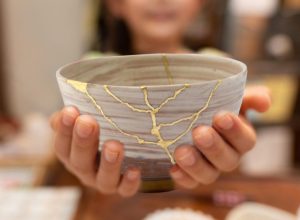 Today, tomorrow and in the days to come we can reimagine our ways of living. We can think and live in a regenerative ways. These ways can integrate the needs of society with the integrity of Nature. These ways consider the needs of all humans and more than humans.
Today, tomorrow and in the days to come we can reimagine our ways of living. We can think and live in a regenerative ways. These ways can integrate the needs of society with the integrity of Nature. These ways consider the needs of all humans and more than humans.
Rhonda sets forth the practice of limiting our consumption and waste in the form of vows:
We will use and value renewable resources whenever possible and make every effort to reuse or recycle . . . We are committed to making our homes as energy efficient . . . We will consume in a way that promotes health and wellbeing in our bodies and consciousness. . . . We will nourish the collective body of our community and the Earth by sharing our time, energy, and material resources with those who are in need.
In our circle we affirm the gift of Life. We cultivate loving awareness to help us live with intention and care and to appreciate all our blessings. As poet philosopher John O’Donohue Morning Offering:
Bless the night that nourished my heart
To set the ghosts of longing free
Into the flow and figure of dream
That went to harvest from the dark
Bread for the hunger no one sees.
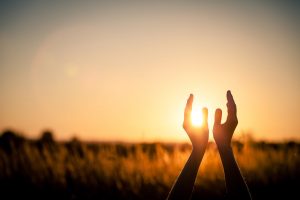 All that is eternal in me
All that is eternal in me
Welcomes the wonder of this day,
The field of brightness it creates
Offering time for each thing
To arise and illuminate.
I place on the altar of dawn:
The quiet loyalty of breath,
The tent of thought where I shelter,
Waves of desire I am shore to
And all beauty drawn to the eye.
May my mind come alive today
To the invisible geography
That invites me to new frontiers,
To break the dead shell of yesterdays,
To risk being disturbed and changed.
May I have the courage today
To live the life that I would love,
To postpone my dream no longer
But do at last what I came here for
And waste my heart on fear no more.
Let us savor the bread for the hunger no one sees. May our minds come alive today . . . may we risk being changed . . . may we have the courage to the live the lives we would love.
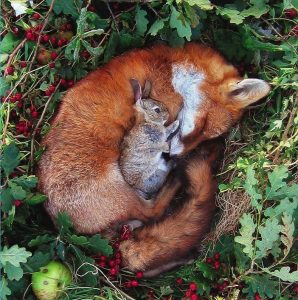 Rest on Earth’s body. Take a deep breath. This breath is given by the Earth. Again, take a deep breath. This breath is given by the ocean. We are breathing the out breath of living plants and phytoplankton. As John O’Donohue says we can place the quiet loyalty of breath on our morning altar. What does it mean to savor the bread for the hunger no one sees? We can plant this question like a seed in our hearts and grow wisdom. We can align this wisdom with Earth Wisdom. In his essay, Indigenous to Life, Daniel Christian Wahl writes:
Rest on Earth’s body. Take a deep breath. This breath is given by the Earth. Again, take a deep breath. This breath is given by the ocean. We are breathing the out breath of living plants and phytoplankton. As John O’Donohue says we can place the quiet loyalty of breath on our morning altar. What does it mean to savor the bread for the hunger no one sees? We can plant this question like a seed in our hearts and grow wisdom. We can align this wisdom with Earth Wisdom. In his essay, Indigenous to Life, Daniel Christian Wahl writes:
We are all indigenous to life. . . Earth wisdom traditions [are] about alignment with life as a process, living in right relationship and letting life’s regenerative patterns flow through us. In this way of being we understand ourselves not as owners but rather as expressions of place. The land does not belong to us, we belong to the land. The land and the sea will be there long after we return to the soil as compost for new life.
As life, how do we let Earth wisdom flow through us as we set out to create conditions conducive not just for all of humanity but for all of life?
This is another question we can plant in our hearts. We can and nurture it every day, questioning our choices and reimagining our doing, being and thinking. We can remember Rhonda’s vows:
Nature uses only what it needs, we too [can] . . . consume only the energy we need and . . . not to waste the Earth’s precious resources . . .
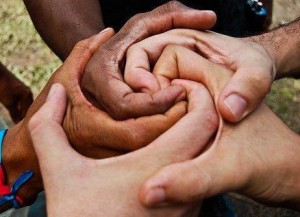 Daniel’s work calls for a “re-inhabitation” of our consciousness as well as our Earth home. He argues that we can:
Daniel’s work calls for a “re-inhabitation” of our consciousness as well as our Earth home. He argues that we can:
. . . try to meet human needs in ways that regenerate healthy ecosystems . . . thriving communities and vibrant economies – place by place. . . . The future potential of the present moment is to come home to our bodies, our communities, our places and bioregions now . . .
As we practice together, “ . . . may [our] mind[s] come alive today to the invisible geography that invites [us] to new frontiers, to break the dead shell of yesterdays . . . To risk being disturbed and changed.” Right now you can hear Thich Nhat Hanh’s counsel to:
Breathe in and be aware of your body and look deeply into it and realize you are the Earth and your consciousness is also the consciousness of the earth… You carry Mother Earth within you. She is not outside of you…

